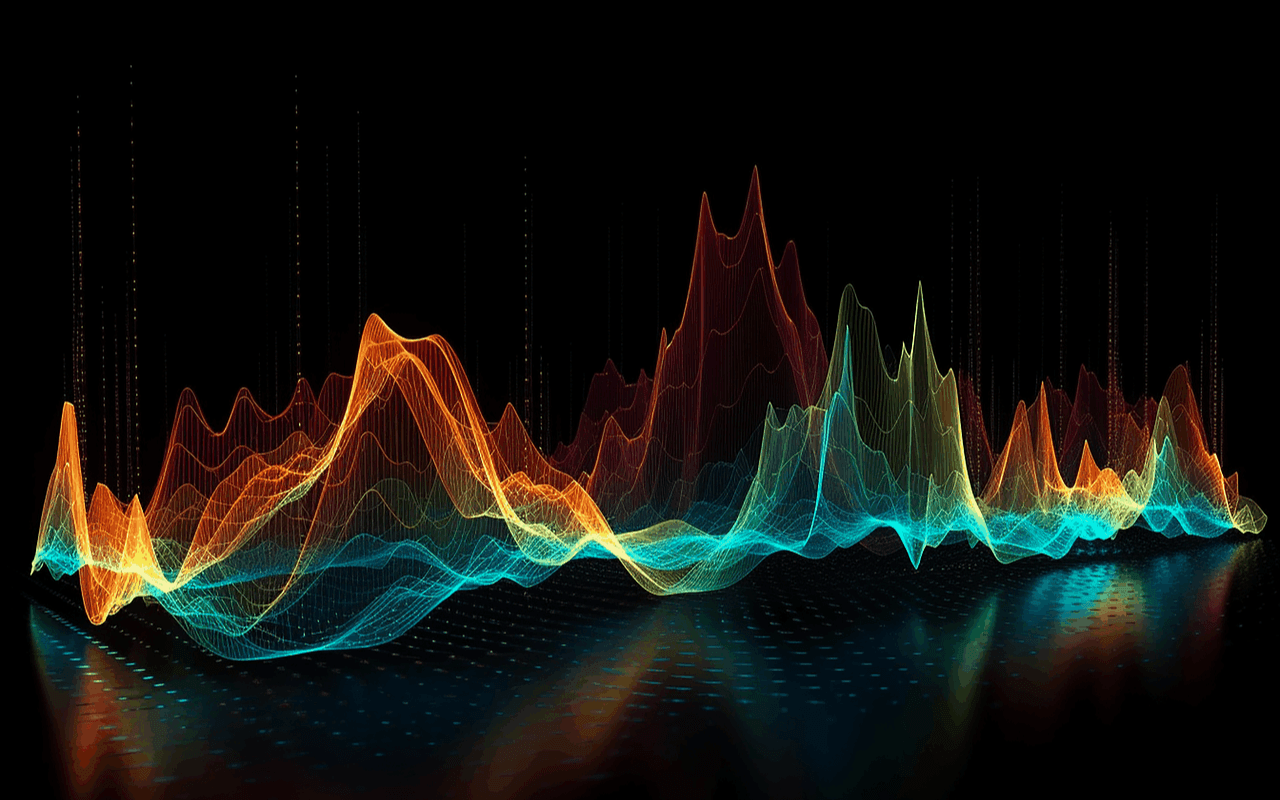Introduction
Welcome to our guide on the future of composition. In this guide, I will delve into the transformative technologies shaping and likely to shape the music industry, including artificial intelligence (AI), spatial computing, and virtual reality (VR). These advancements are opening up new ways for creators to produce and distribute music, revolutionizing the creative process.
Topic 1: The Evolution of Music Technology: From Analog to Digital to AI
The Analog Era: Instruments, Recording, and Production Techniques
In the analog era, composition relied heavily on traditional instruments, such as pianos, guitars, and orchestral ensembles. Recording techniques involved capturing performances on tape and mastering the final product on vinyl records. Back then, composers faced limitations in terms of sound manipulation and editing, requiring meticulous planning during the recording process.
However, analog instruments and recording techniques possessed a unique warmth and organic quality that many artists still appreciate today. Classic albums like The Beatles' "Abbey Road" and Pink Floyd's "The Dark Side of the Moon" stand as enduring examples of the artistry and sonic character that analog recording techniques can offer.
The Digital Revolution: MIDI, DAWs, and Computer-Based Composition
Before the rise of AI Music Production, the introduction of the Musical Instrument Digital Interface (MIDI) in the 1980s first revolutionized the industry. With MIDI, composers could create without being confined to a specific set of sounds or instruments, opening up new avenues for creativity and experimentation. To learn more about MIDIs and what they are, check out our blog post on MIDIs.
The rise of digital audio workstations (DAWs), such as Logic Pro and Ableton Live, further empowered composers to create and manipulate music using computer software. These production tools brought unprecedented flexibility to composition.
As a result of MIDI and digital technology, composers no longer needed expensive recording studios or large ensembles to realize their musical visions. With a computer, MIDI controller, and software, composers could create in any genre they desired.
Analog Composition | Digital Composition | |
Sound Quality | Organic/Warm | Precise |
Flexibility | Limited Flexibility | High Flexibility |
Sound Generation | Traditional/Analog Instruments | Analog Instruments & Virtual/Electronic Instruments |
Recording | Tape/Vinyl | Digital Data |
The Rise of AI Music Production: Redefining Composition and Creativity
AI music production tools, like Staccato, use sophisticated neural networks algorithms to understand patterns and structures in existing compositions. By studying a diverse data sets of musical genres and styles, these AI music generators can generate original compositions based on specific parameters set by the composer or just descriptive text.
Moreover, AI can suggest chords, melodies, and lyrics that complement a composer's ideas or even provide inspiration for entirely new musical directions. To better understand how AI can help you compose, check out our blog on how AI music generation can enhance your experience on Ableton Live.
AI Music Composer, Staccato, is among the best AI music production tools, offering advanced features that streamline the creative process for both content creators and professional musicians.
Human Element in AI Music Producer
The integration of AI in composition raises important ethical considerations. While AI offers powerful tools for generating and assisting in composition, it challenges the notion of human creativity and the emotional expression associated with music. It is crucial to strike a balance between utilizing AI as a creative tool and preserving the unique human perspective and artistic intention in composition.
Furthermore, issues related to royalties and authorship arise. When a producer uses AI to create soundtracks for video games and other media, questions arise about ownership: do the rights belong to the producer, the studio, or even the AI developers? Major labels like UMG are actively exploring how to navigate these new territories.
Topic 2: Spatial Computing and AR: Enhancing Musical Immersion and Experience
While AI music production focuses on revolutionizing how musicians create and compose, spatial computing and AR are transforming audience experiences by delivering immersive soundscapes and interactive performances.
Spatial Audio: Creating Immersive Soundscapes
Spatial audio technologies allow composers to create music that feels like it's coming from different directions. It uses special recording techniques and advanced sound processing to make the music sound more realistic and immersive. This is done by placing sounds in specific spots and making them move around. Apple products are a prominent example of spatial audio usage.
Augmented Reality (AR) in Music: Interactive Performances and Experiences
Augmented reality (AR) is revolutionizing music performances and experiences by overlaying digital elements onto the real world. Composers can leverage AR to create interactive performances where virtual elements, such as visualizations or virtual instruments, coexist with physical instruments and performers. AR-enhanced concerts blur the boundaries between the physical and virtual realms, offering audiences a unique and interactive experience. Snapchat has recently announced its partnership with LiveNation to bring AR to performances.
Concerts and festivals that will feature the AR experiences include:
Electric Daisy Carnival (Las Vegas, NV)
The Governors Ball (New York, NY)
Bonnaroo Music & Arts Festival (Manchester, TN)
Rolling Loud Miami (Miami, FL)
Lollapalooza (Chicago, IL)
Austin City Limits (Austin, TX)
Topic 3: Virtual Reality (VR) Composing: Unleashing New Creative Frontiers
Another groundbreaking technology for musicians, alongside AI music production, is VR composing, which unlocks new dimensions of creative possibilities.
The Intersection of VR and Composition
Virtual reality (VR) provides composers with an immersive and interactive medium for creative expression. VR enables composers to explore unique sonic landscapes, experiment with different instrumentations, and craft compositions that transcend the limitations of physical space. Take a look at Patchworld, a multiplayer music maker on the Meta Quest VR headsets.
Additionally, VR allows for musicians to express their art in unique fashions. A popular use case of this is on YouTube, where artists create 360º music videos. Pop artist The Weekend’s The Hills remix feat. Eminem, is one of the most well-known examples of this.
Examining the Societal Impact and Ethical Concerns
The advent of advanced technologies like AI music production, spatial computing, and virtual reality is not only transforming how music is created and experienced but also reshaping its societal landscape. These innovations offer unprecedented opportunities for musicians and creators, yet they also bring forth important ethical considerations that must be addressed.
Enhancing, Not Replacing, Human Musicians
One of the most significant benefits of AI in music production is its ability to augment the creative capabilities of human musicians rather than replace them. AI music producers, such as Staccato, serve as powerful tools that enhance the artistic process. By handling repetitive tasks, suggesting new melodies, or generating unique soundscapes, these AI tools allow musicians to focus more on their creative vision and emotional expression. Staccato exemplifies this collaborative approach, providing features that streamline the creative workflow while preserving the unique human touch that defines authentic music.
Democratizing Music Creation
AI music production tools democratize the composition process, making it accessible to a broader range of creators. With platforms like Staccato, individuals without formal training can experiment with music creation, fostering a more diverse and inclusive musical landscape. Social media platforms such as Instagram and YouTube further amplify this democratization, enabling talented artists to gain visibility and reach wider audiences through viral trends.
Economic Implications for Musicians
Despite these advantages, the rise of AI-generated music raises concerns about the economic viability for traditional musicians. As AI tools become more efficient and scalable, there is a fear that they could overshadow human artists, potentially leading to reduced opportunities and income for musicians. However, when used thoughtfully, AI can serve as a complementary asset, helping artists to produce more work and explore new creative avenues without diminishing their value.
Maintaining Musical Authenticity and Quality
The ease of access to AI music production tools may lead to an increase in the volume of music being created. While this can foster innovation, it also poses the risk of homogenizing musical outputs, where originality might take a backseat to algorithm-driven trends. Ensuring that quality and authenticity remain paramount is essential for maintaining the integrity of music as an art form. Artists must strive to balance the use of AI with their unique creative instincts to preserve the emotional depth and personal expression that resonate with audiences.
Ethical Considerations in Authorship and Ownership
AI’s capability to analyze and replicate existing musical works blurs the lines between inspiration and imitation, raising questions about authorship and ownership. When AI tools generate music that closely resembles a human artist’s style, determining the rightful owner of the creation becomes complex. Platforms like Staccato address these ethical challenges by ensuring that their AI models are trained on fairly sourced musical data. This approach guarantees that the music generated through Staccato respects the original creators’ rights and maintains clear ownership for the users.
Fostering a Collaborative Future
Addressing these societal and ethical concerns requires a collaborative effort among artists, technologists, and industry stakeholders. By fostering open dialogues and establishing fair practices, the music industry can navigate the challenges posed by AI and other advanced technologies. Emphasizing the complementary nature of AI tools like Staccato ensures that innovation enhances artistic expression while respecting the invaluable contributions of human musicians.
Conclusion & Thoughts for the Future
As AI music production and related technologies continue to evolve, their impact on society and the ethical landscape of the music industry will become increasingly significant. By embracing these tools as enhancers of human creativity and addressing the accompanying ethical challenges, the future of music can be both innovative and inclusive. Tools like Staccato demonstrate that AI can play a supportive role, empowering musicians to reach new heights without compromising their artistic integrity.
FAQ
How to use AI for music production?
Just start experimenting with AI in music production. Try LALAL.AI for stem separation, LANDR for AI-powered mastering, and use Staccato’s text-to-MIDI feature to generate musical ideas from text descriptions, or use its extend tool to seamlessly continue your existing MIDI compositions.
How to use AI in music production efficiently?
Choose the AI products that seamlessly fit into your workflow, like Staccato’s DAW Plugins.
What's the difference between Staccato and other AI Composers, like AIVA, Soundraw, and Udio?
Staccato distinguishes itself by expertly balancing simplicity, flexibility, and high-quality results. It outputs MIDI, allowing musicians to easily customize and integrate generated music into their projects. Its seamless integration allows users to connect directly to their DAWs or via the browser, ensuring a smooth workflow without the need to change existing setups. Additionally, Staccato is committed to ethical AI music production, using fairly sourced musical data to guarantee full copyright ownership for all creations.

Dr. Jeffrey Lupker - Co-founder, Staccato
International Speaker & Published Author on Deep Learning & Music.
Dr. Lupker has published peer-reviewed journal articles and book chapters and has given lectures internationally in the fields of deep learning, machine learning and music. Beyond Staccato and his own research, Dr. Lupker is an active performer on guitar and keyboards and has played across Canada and USA with award winning artists.
